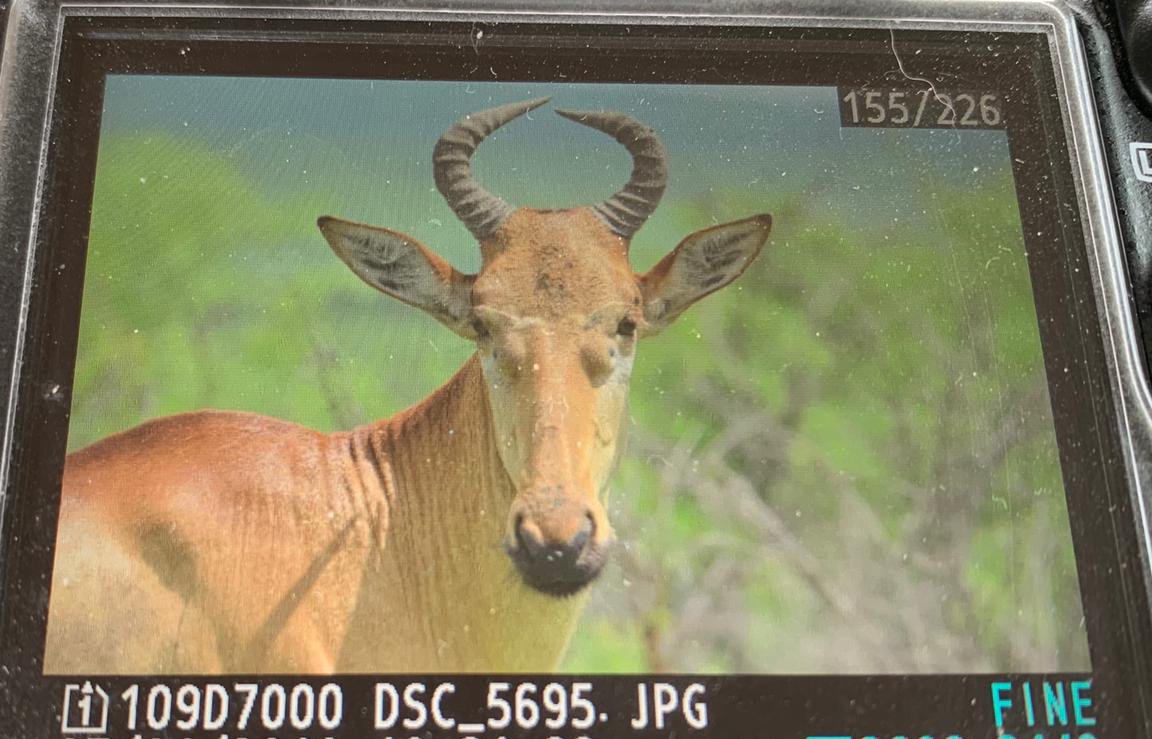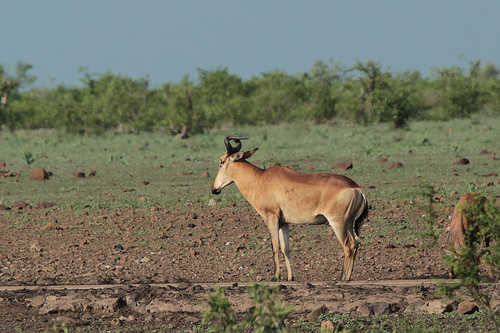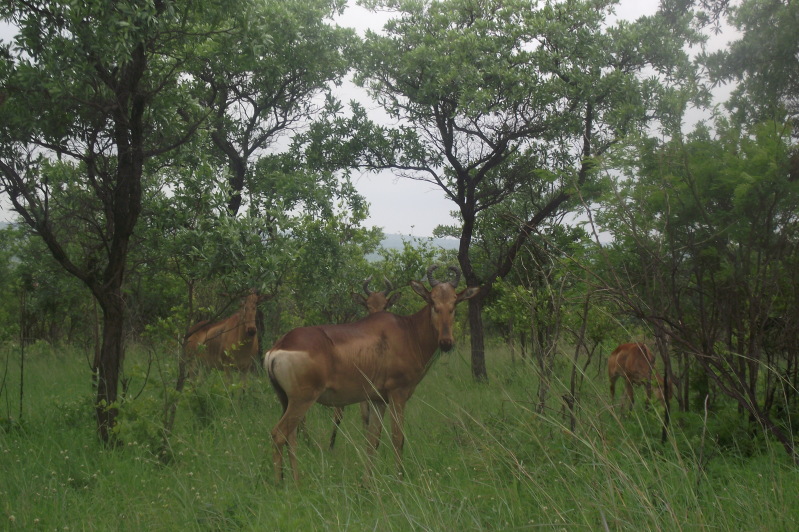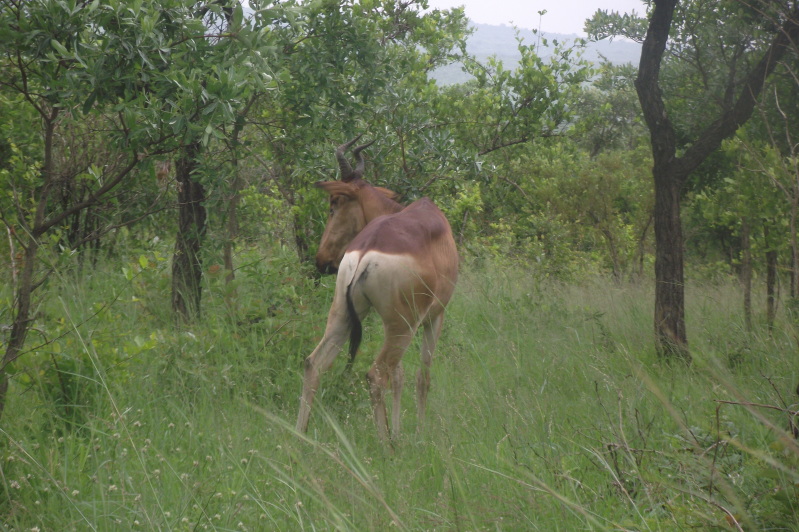Lichtenstein's Hartebeest [Alcelaphus lichtensteinii]
There are some biologists who classify the Lichtenstein's Hartebeest as Sigmoceros lichtensteinii.
Appearance
Lichtenstein's Hartebeests are large antelope with humped shoulders, sloping back and elongated head. Cows can weigh 180 Kg and adult bulls over 200 Kg. At the shoulder the height of both sexes measures 1.25m. Their body colour is a light tawny, with a rufous saddle extending from the base of the tail to the shoulders.
Rump, hind legs and under parts of tail are off-white. Fronts of lower legs are black, as is the tip of the tail. A characteristic dark patch is visible on the flanks due to continuous rubbing of the face on the flanks. Dust sticking to the secretion rubs off onto the flanks from the preorbital glands situated on the face. Backward curving s-shaped horns are found on both sexes. The bulls' horns are thicker at the base.
Diet
This is a grazer dependant on perennial grasses. They prefer new growth in burnt areas, when available. It grazes in the cool of early mornings and late afternoons.
Breeding
Following a gestation period of 240 days females calve during August and September. Within herds calves are born at the same time, which is an anti-predator mechanism. Calves weigh 15 kg at birth. Females are sexually mature between 16-18 months. The calves are weaned by about 12 months and reach sexual maturity around 24 months. The Lichtenstein's Hartebeest has a lifespan of potentially 20 years.
Behaviour
Gregarious antelope, with herds consisting of about ten animals. A territorial bull can have six or seven adult females together with their offspring. Young bulls are expelled from the herd at the age of 10-12 months and young females leave the group from 15-18 months.The territorial bull defends his territory during the rut. Their territorial system breaks down during calving period, which may also be an anti-predator adaptation, affording protection to the young calves by moving around.
Habitat
They prefer an open habitat with adequate drinking water, hence its distribution in areas of higher rainfall.
Where they are found
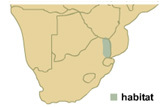
Region map that they are most found in.In South Africa it occurred marginally only in the region of the present day Kruger National Park, where it became extinct. A new population has been established be relocating animals from Malawi. They are very rare in the subregion.
Predators
Lion, Leopard, Cheetah, Spotted Hyena and Cape Hunting Dog.
http://www.krugerpark.co.za/africa_hartebeest.html
South Africa has only one very small population of about 50 Lichtenstein’s Hartebeest occurring in the Kruger National Park, to where they were reintroduced from Malawi in the 1980’s after being hunted to local extinction at the end of the 19th century. We’ve been lucky to have a handful of sightings of them in Kruger near Punda Maria, Mopani and Pretoriuskop. Lichtenstein’s Hartebeest are still numerous enough, especially in Tanzania and Zambia, for the IUCN to consider their populations stable and their conservation status as “Least Concern“, with an estimated population of around 82,000, though they also do highlight that the subspecies is vulnerable to poaching and reliant on continued protection in formal conservation areas.
Some authorities consider Lichtenstein’s Hartebeest to be a seperate species from other races of the Common Hartebeest (A. buselaphus), also represented in South Africa by the Red Hartbeest (A. buselaphus caama).
https://dewetswild.com/2016/08/26/licht ... artebeest/
The Lichtenstein's Hartebeest is the rarest antelope in the Kruger and extremely difficult to see. Below is a guide of where to specifically look for Lichtenstein's Hartebeest in the Kruger National Park, its starts off with a list of the best areas to visit and roads to drive and there is a distribution map of the hotspots of where this animal occurs most frequently.
The Ship Mountain area
Jocks birth place turn off
Fayi Loop
Mahonie loop
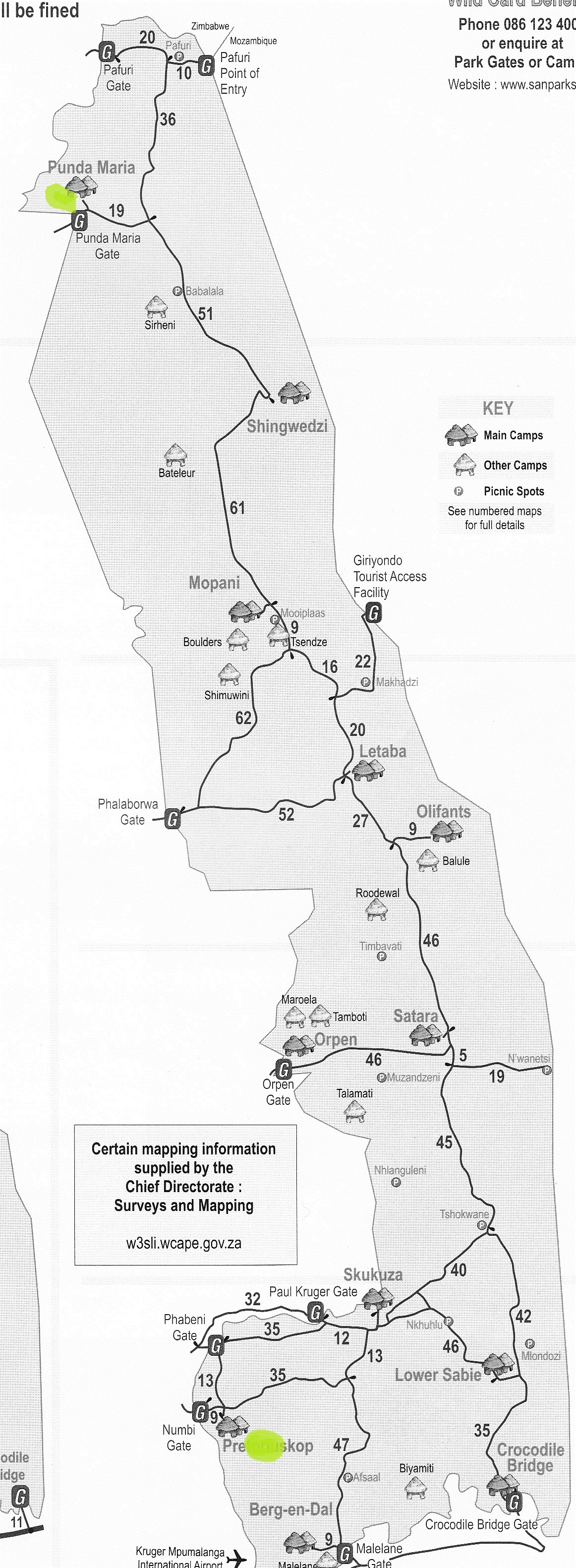 http://www.thekruger.com/wheretofind/li ... ebeest.htm
http://www.thekruger.com/wheretofind/li ... ebeest.htmPlease check Needs Attention pre-booking: https://africawild-forum.com/viewtopic.php?f=322&t=596
